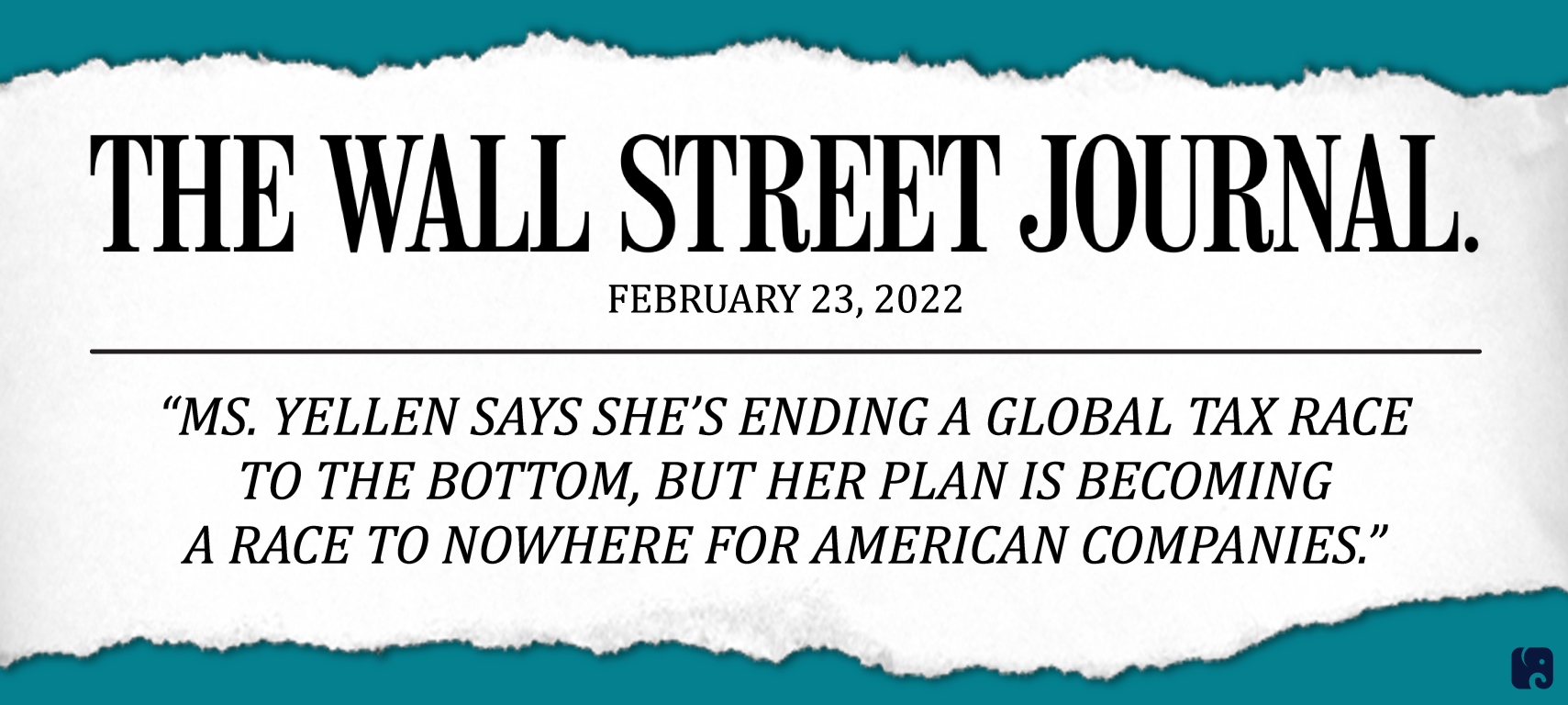Biden's Global Tax Deal Will Harm American Competitiveness
KEY TAKEAWAYS
- President Biden wants to use international negotiations to push Democrats’ partisan tax hikes in the U.S.
- His administration brokered an international tax agreement that would make American companies less competitive and leave U.S. workers behind.
- The Biden deal would force the United States to raise its first-of-a-kind global minimum tax while failing to protect U.S. tax incentives that support domestic innovation, investment, and job creation.
For years, the United States has participated in negotiations through the Organization for Economic Cooperation and Development to craft an international tax agreement. The effort started partly in response to European countries implementing digital services taxes targeting U.S. tech companies that have millions of users, but limited physical operations, worldwide. The U.S. approach – with bipartisan backing – was focused on defending American job creators from foreign tax grabs. This negotiating posture was bolstered by the 2017 Republican tax law, which made the U.S. the first and only country to enact a minimum tax on multinational companies as part of broader reforms to enhance global competitiveness.
Valid negotiations hijacked for partisan ends
President Joe Biden took a cudgel to this approach. He entered office with a plan to hike taxes to pay for trillions of dollars of partisan social spending, and his administration wants to use these international negotiations to justify the scheme.
Leading the charge is Treasury Secretary Janet Yellen, who has reframed the U.S. objective as ending a global “race to the bottom on corporate taxation.” Treasury has claimed that raising taxes on job creators will increase economic opportunity for workers, ignoring recent economic history that undermines this claim. With this backward strategy, the Biden administration brokered a deal that would render American businesses less competitive in the global marketplace and threaten U.S. jobs. Now its priority is to leverage this agreement to force congressional action on Democrats’ radical agenda.
The Biden Administration’s Backward Strategy

A Bad Deal
The agreement the administration brokered at the OECD would require countries to enact a minimum global tax rate of 15% on the earnings of multinational businesses, higher than the 13.125% effective minimum tax rate under U.S. law. To comply, the United States would be forced to raise its minimum tax; otherwise, Treasury’s agreement would allow other countries to impose additional taxes on U.S. companies.
The Biden administration was happy to endorse this tax hike because Democrats want to use it and other job-killing tax increases to pay for their reckless spending spree. The administration seems confident that other countries will actually follow through on their commitments if we go even further out on a limb. This assumption is in doubt, however: in the four years since the U.S. established an international minimum tax, no other country has followed suit.
Specifics on how the global minimum tax, known as the “Pillar 2” portion of the deal, will be implemented have added more layers of concern. Over time, Congress has enacted various tax credits and deductions to encourage businesses to invest, innovate, and create jobs. The Biden deal fails to adequately account for a swath of these targeted investment incentives, like credits for research and development and to build low-income housing. Despite the administration’s lack of tax-writing authority, Treasury has threatened to abolish the deduction for foreign-derived intangible income, which incentivizes businesses to bring their intellectual property and accompanying jobs back to the U.S. Under the proposed rules, American companies could be hit by a “top-up tax” in other countries if their effective U.S. tax rate dips below 15% after these incentives. This makes the incentives less valuable and may result in U.S. tax dollars going to foreign governments. It also undercuts the constitutional authority of Congress to craft U.S. tax policy.
The agreement treats refundable tax credits, which are preferred by European countries, more favorably than it does the non-refundable credits that are far more common in the U.S. tax code. Under this structure, an American company that utilizes a non-refundable credit would be subject to higher taxes than its European competitor taking advantage of a similar refundable credit. To add insult to injury, this same American business could owe a top-up tax to the European government providing the similar refundable credit. Businesses are raising alarms about the looming disadvantage for U.S. job creators and workers.
President Biden is determined to use an international tax agreement to advance Democrats’ reckless tax hike plans. In its zeal, the administration negotiated an agreement that would make American companies less competitive, and, like the rest of his radical agenda, leave U.S. workers behind.
Next Article Previous Article
